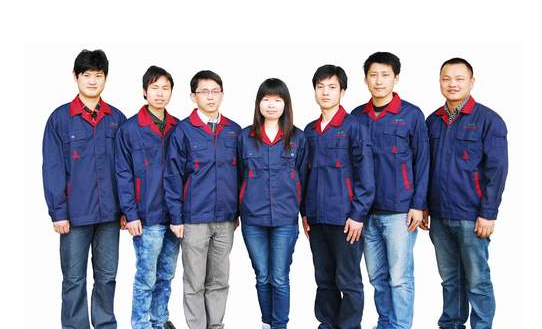In this article, we will delve into the different ways to express the concept of "more than" in English. Whether it's a matter of comparison, quantity, or degree, the English language offers a wide array of phrases and expressions to convey the idea of surpassing a certain threshold. This exploration will cover four main aspects: comparative expressions, quantitative phrases, intensifiers, and idiomatic expressions. By the end of this article, readers will have a comprehensive understanding of the various ways to articulate "more than" in English.

Comparative expressions are commonly used to indicate that one thing exceeds another. These phrases provide a clear point of comparison and emphasize the degree to which something surpasses a given standard. One frequently used comparative expression is "superior to," which suggests a higher quality or level than something else. For example, "Her intelligence is superior to her peers." Another useful phrase is "outweighs," which implies that the benefits or importance of one thing surpass those of another. For instance, "The advantages of exercise outweigh the inconvenience of waking up early." Additionally, "exceeds" is a straightforward term that signifies going beyond a specific limit or expectation. An example sentence could be, "The cost of living in this city exceeds the national average."

Comparative expressions provide precision and clarity in demonstrating how one thing surpasses another, highlighting the level of superiority.
Furthermore, comparative expressions can be embellished by using adjectives or adverbs to intensify the degree of surpassing. Adjectives like "significantly," "considerably," or "dramatically" can be added to emphasize the magnitude of the difference. For example, "The revenue growth was significantly higher than projected." Similarly, adverbs such as "vastly" or "greatly" can be used to enhance the comparative nature of the expression, as in, "She greatly outperformed her competitors in the race."

Quantitative phrases are especially pertinent when expressing the concept of "more than" in terms of numbers or amounts. These phrases help convey a precise sense of quantity or proportion. One common phrase is "in excess of," which implies a quantity greater than a specified value. For instance, "The company's profits are in excess of one million dollars." Another useful term is "beyond," which signifies going further or above a certain limit. For example, "The marathon runner went beyond his personal record." Additionally, the phrase "above and beyond" is employed to suggest going further or doing more than what is expected or required. An example sentence could be, "Her dedication to her job goes above and beyond what is asked of her."

Quantitative phrases provide a quantitative perspective and enable us to articulate the concept of "more than" in terms of specific numbers or proportions.

Moreover, to further emphasize the magnitude of surpassing a certain amount, we can use words and phrases such as "considerable," "substantial," or "a significant amount." These additions highlight the degree to which the quantity surpasses the expected or standard amount. For instance, "He donated a considerable amount of money to the charity."

Intensifiers are useful when expressing degrees of comparison and emphasizing the surpassing nature of a particular quality or characteristic. These words or phrases add intensity and emphasize the extent to which something exceeds expectations. One common intensifier is "much," which can be used to convey a significant or considerable difference. For example, "This new technology is much faster than the previous version." Another frequently used word is "far," which implies a great distance or extent in surpassing a certain standard. An example sentence could be, "The performance far exceeded our expectations." Additionally, the intensifier "way" can be employed to indicate a considerable or significant surpassing. For instance, "She is way more talented than her peers in this field."

Intensifiers contribute to the emphasis of exceeding a specific threshold and lend additional impact to the comparison.
Furthermore, intensifiers can be amplified by using adjectives or adverbs to accentuate the surpassing quality. Adjectives such as "remarkably," "extraordinarily," or "exceptionally" can be incorporated to convey a sense of noteworthy distinction. For example, "She has an exceptionally higher IQ than most inpiduals." Similarly, adverbs like "remarkably" or "strikingly" can be used to intensify the degree of surpassing, as in, "The results were strikingly better than anticipated."

Idiomatic expressions add color and creativity to our language, and they also offer alternative ways of expressing the concept of "more than." These expressions are often well-known phrases, the meanings of which extend beyond the literal interpretation of the words themselves. One frequently used idiom is "above and beyond the call of duty," which refers to going beyond what is expected or required. For example, "His dedication to his job goes above and beyond the call of duty." Another widely recognized idiom is "in a league of its own," which signifies that something is unmatched or incomparable. An example sentence could be, "This restaurant's cuisine is in a league of its own."

Idiomatic expressions inject creativity and vividness into language, offering interesting alternatives for expressing the concept of "more than."
Additionally, idiomatic expressions often carry metaphorical meanings that contribute to the richness of the language and facilitate effective communication. For instance, "Light years ahead" symbolizes a significant advancement or progress in surpassing a previous state. An example sentence could be, "This new technology is light years ahead of its competitors."

In conclusion, the English language offers a variety of ways to convey the concept of "more than." Comparative expressions provide precision and clarity in articulating the degree to which something surpasses another. Quantitative phrases enable numerical or proportional articulation of surpassing quantities. Intensifiers add intensity and emphasize the degree of surpassing a certain standard. Idiomatic expressions, on the other hand, bring creativity and color to our language, providing interesting alternatives for expressing the concept of "more than." By exploring and utilizing these perse ways of articulating "more than" in English, one can effectively convey the idea of surpassing a certain threshold, whether in comparison, quantity, or degree.
标题:超过多于用英语怎么说(Exploring Various Ways to Say 'More than' in Engl
地址:http://www.hmhjcl.com/kongdiao/127311.html

